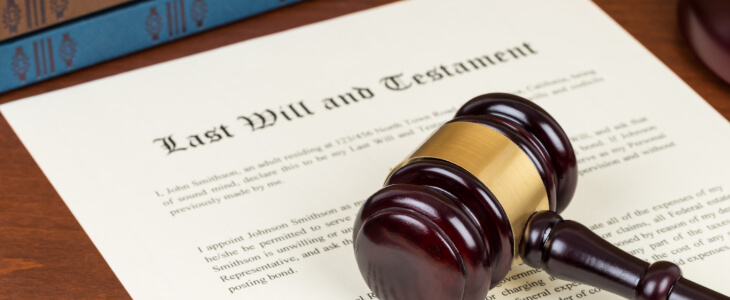The most involved form of probate in Florida is called “formal probate administration.” This is the court process for administering and closing estates that have non-exempt assets subject to probate valued at over $75,000. If the deceased also passed away less than two years ago, a formal administration must be initiated.
Farshchian Law’s experienced Florida formal administration attorneys work closely with personal representatives (also called executors) of an estate, who are charged with guiding an estate through the formal probate process. We use our knowledge of the legal, practical, and financial complexities involved in formal probate administration to ensure that personal representatives and heirs meet their legal and ethical responsibilities, issue all necessary legal notices, and account for and distribute assets as required by law. Our goal is to facilitate a smooth and trouble-free process so that the personal representative can administer and close out an estate with clarity and confidence and without any unpleasant legal surprises.
The Formal Probate Process In Florida
At Farshchian Law, we assist clients through each step of the formal probate process. Formal probate administration begins with the filing of a petition for administration with the court which sets forth the estate’s assets and heirs and requests that a personal representative be appointed for the deceased’s estate.
The death certificate of the deceased and the original will (if the deceased left a will) must also be filed with the probate court. After the probate estate is opened, we will draft and file the petition to appoint the personal representative and the oath of the representative. The probate court will then issue Letters of Administration appointing the personal representative and bestowing upon them the many responsibilities and obligations that come with the role. Our role as the probate attorney for the estate is to assist the personal representative with:
- Identifying which estate assets must go through the probate process
- Gathering estate assets
- Properly notifying all heirs and beneficiaries
- Drafting the documents to have the personal representative appointed
- Preparing an inventory of estate assets
- Identifying creditors for the payment of debts and taxes
- Opening the estate bank account
- Preparing disclaimers of interest in property
- Drafting any petitions to sell real property
- Distributing all assets to beneficiaries
- Preparing and submitting a final accounting to the court
- Facilitating the transfer of title once probate is complete
- Assisting in the sale of probate property
Once all debts and taxes that are required to be settled are paid, the estate assets have been distributed, and all other obligations have been fulfilled, a petition for discharge may be filed with the court to close out the estate. If all is in order, the court will issue an order relieving the personal representative of any further responsibility and concluding the formal probate process.
Farshchian Law: Experienced Guidance For Formal Probate Administration
If you are a personal representative, petitioner, or other person charged with the heavy responsibility of guiding an estate through the formal probate process, the probate attorneys at Farshchian Law can help you understand and fulfill your obligations, taking the burden off of your shoulders and providing you with much-needed peace of mind. Please call us at (800) 604-1871 or email us at Info@JFRealEstateLaw.com for a free consultation on how Farshchian Law can assist you with the formal probate process.

